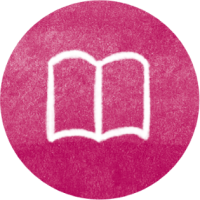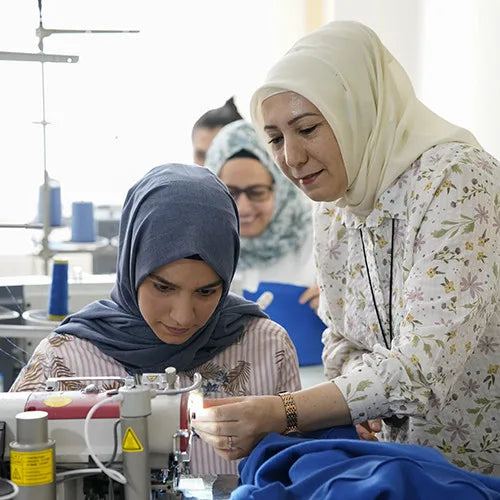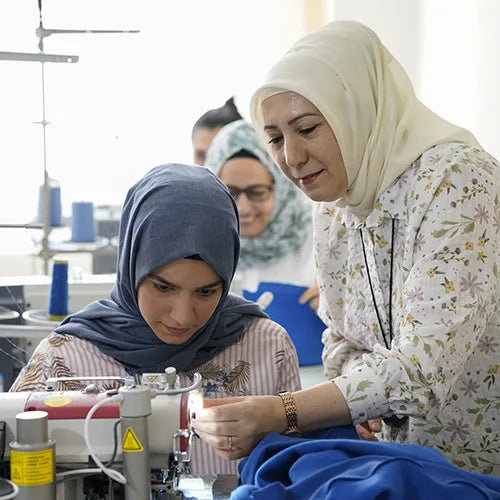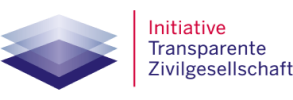Day 23
8 minutes of vocational training for refugee women in Turkey
 Empowering Syrian women for the future Empowering Syrian women for the future
Empowering Syrian women for the future Empowering Syrian women for the future


Growing through education and developing visions

Eva Dölker-Heim presents her favourite project
need
Education and empowerment of refugee women in Izmir
activity
The project provides space in a protected environment to conduct courses and training to empower refugee women
Measurable performance
Number of training hours and available training places
Result
Women increase their self-confidence, creativity and social responsibility and are able to lead self-determined lives
Systemically relevant impact
Women are given improved opportunities to participate in working life and are able to develop further perspectives for themselves
background


The good deed
About Turkey
Ankara
Capital city
85,341,241
Population
10,616.1
Gross domestic product
per capita per year
0.838
Human Development Index
(Human Development Index)




